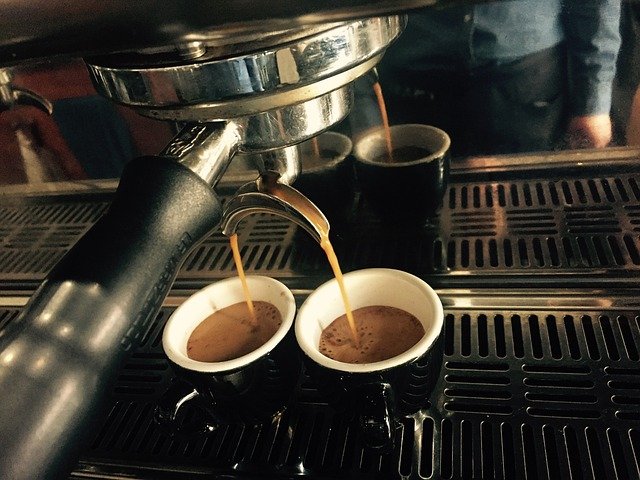Barista Jobs: Training and Career Path Guide
Barista courses teach coffee preparation, espresso techniques, and latte art. Students gain knowledge of coffee beans, brewing methods, and machine handling. These courses support careers in cafés and hospitality or enhance personal coffee-making skills.

What Barista Courses Cover
Barista courses provide structured training in coffee preparation fundamentals, equipment operation, and customer service skills. Most programs cover espresso extraction principles, milk texturing techniques, and basic latte art creation. Students learn to operate commercial espresso machines, grinders, and brewing equipment while understanding coffee bean origins and roasting processes.
Professional training programs typically include hands-on practice with industry-standard equipment, allowing students to develop muscle memory for consistent drink preparation. Course content often extends beyond technical skills to include workplace safety, cash handling procedures, and communication techniques for busy service environments.
How to Become a Barista
The path to becoming a barista varies depending on the employer and local market conditions. Many coffee shops provide on-the-job training for entry-level positions, teaching specific procedures and drink recipes. However, formal training can provide advantages in competitive job markets and may lead to higher starting wages.
Basic requirements typically include strong communication skills, ability to work in fast-paced environments, and willingness to learn detailed preparation techniques. Physical demands include standing for extended periods, lifting supplies, and maintaining consistent quality during busy periods. Some employers prefer candidates with food service experience, though many are willing to train motivated individuals with no prior background.
Educational pathways include community college hospitality programs, specialized coffee training centers, and online certification courses. Each option offers different advantages in terms of cost, time commitment, and hands-on experience opportunities.
Barista Courses Guide: Training Options
Several types of training programs serve different career goals and learning preferences. Community colleges often include barista training within broader culinary or hospitality programs, providing comprehensive food service education alongside coffee-specific skills. Specialized coffee training centers focus exclusively on coffee preparation techniques and industry knowledge.
Online courses offer flexibility for working adults, covering theoretical knowledge about coffee origins, brewing methods, and customer service principles. However, hands-on equipment training requires in-person instruction for proper technique development.
Professional certification programs from organizations like the Specialty Coffee Association provide standardized training levels recognized throughout the industry. These programs range from introductory courses covering basic skills to advanced certifications in coffee quality assessment and brewing competition standards.
| Training Option | Provider Type | Duration | Cost Range |
|---|---|---|---|
| Community College Programs | Local Colleges | 6-12 weeks | $200-800 |
| Specialized Coffee Schools | Private Institutions | 1-5 days | $150-500 |
| Online Certification | Various Providers | Self-paced | $50-300 |
| SCA Certification | Specialty Coffee Association | 1-3 days | $200-600 |
Prices, rates, or cost estimates mentioned in this article are based on the latest available information but may change over time. Independent research is advised before making financial decisions.
Career Development and Advancement
Barista positions often serve as stepping stones to supervisory roles, coffee shop management, or specialized positions within the coffee industry. Experienced baristas may advance to shift supervisor, assistant manager, or store manager positions with additional training in business operations and staff management.
The specialty coffee industry offers paths toward becoming a coffee roaster, quality control specialist, or sales representative for coffee equipment companies. Some baristas develop expertise in coffee cupping and quality assessment, leading to roles in coffee importing or consulting.
Entrepreneurial opportunities include opening independent coffee shops, mobile coffee services, or coffee consulting businesses. These paths require business knowledge beyond coffee preparation skills, including financial management, marketing, and supplier relationships.
Skills and Qualifications
Successful baristas combine technical coffee preparation skills with strong interpersonal abilities and attention to detail. Technical competencies include operating espresso machines, calibrating grinders, and maintaining equipment cleanliness standards. Quality control skills involve recognizing proper extraction timing, milk texture consistency, and drink presentation standards.
Customer service abilities remain crucial for success, as baristas interact with customers throughout their shifts. Communication skills, patience during busy periods, and ability to handle special requests contribute to positive customer experiences and repeat business.
Physical requirements include manual dexterity for latte art creation, stamina for standing during long shifts, and coordination for managing multiple drink orders simultaneously. Mathematical skills help with cash handling, inventory tracking, and recipe scaling.
Understanding the training options and career development paths in coffee service helps individuals evaluate whether barista work aligns with their professional goals and interests. The combination of technical skill development, customer interaction, and potential for advancement makes this field attractive to many entering the food service industry.




